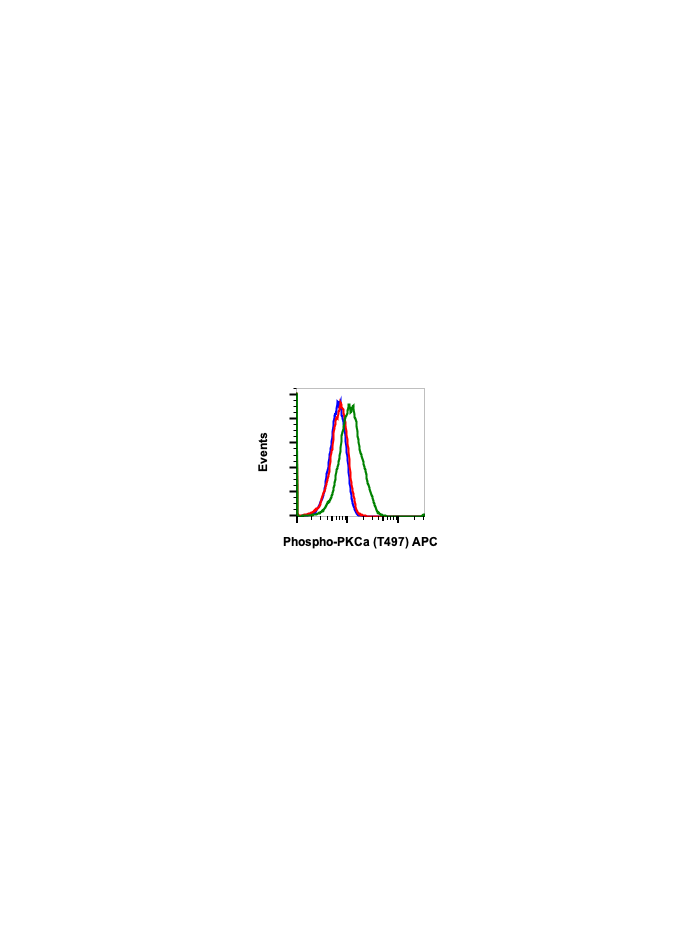Phospho-PKCa (Thr497) (F1) rabbit mAb APC Conjugate
PKCα is a calcium-dependent isozyme of the PKC family that phosphorylates serine/threonine residues in apoptosis and cellular proliferation and differentiation pathways, including the MAPK cascade. PKCα directly phosphorylated Raf-1, inducing survival genes. An increase in PKCα is associated with multi-drug resistance in cancer cell lines, and increased expression in breast cancers is noted as causing a particularly malignant phenotype. Thus PKCα has been the target of novel cancer therapeutics, with some promising developments in microRNA inhibitors. PKCα is itself phosphorylated by mTOR. PKCα also plays an important role in water regulator and solute absorption in the cell, where it regulates aquaporin 2 by initiating AQP2 ubiquination and lysosomal degradation.
| Applications | Flow Cytometry |
|---|---|
| Clone | PKCaT497-F1 |
| Format | APC |
| Validated Reactivity | Human, Mouse, Rat |
| Cross Reactivity | Predicted to work with mouse, rat and other homologues. |
| Clonality | Monoclonal |
| Immunogen | A synthetic phospho-peptide corresponding to residues surrounding Thr497 of human phospho PKCα |
| Formulation | 1X PBS, 0.09% NaN3, 0.2% BSA |
| Isotype | Rabbit IgGk |
| Preparation | Protein A+G |
| Recommended Usage | For flow cytometric staining, the suggested use of this reagent is 5 µL per million cells or 5 µL per 100 µL of staining volume. It is recommended that the reagent be titrated for optimal performance for each application. See product image legends for additional information. |
| Storage | 2-8ºC |
| Pseudonyms | Protein kinase C alpha type, PKC-alpha, PRKCA, PKCA, PRKACA |
| Uniprot ID | p17252 |
| References | Blobe GC, et al., (1993) JBC. 268:658-664. Sim JH, et al., (2014) PLoS One. 9:e101753. Martin EC, et al. (2012) Molecular Carcinogenesis. 53:38-48. |

